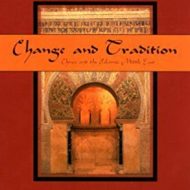In the story, “When Cowboy Chicken Came to Town,” the Chinese locals are introduced to American food, mainly greasy fried chicken. It was interesting to see that the town was excited about this new development and that business was booming. One couple even went as far to have their wedding reception held at the restaurant. I found an article about American food in China that had a slightly different outcome with the public. In this article, the seemingly American restaurants still had a Chinese twist on the foods, while in “Cowboy Chicken” it was totally American. I wonder if this depends on which region of China the restaurants are in, who runs the restaurants, or what groups of people one would ask about American food. As a food fanatic, I am always willing to learn more about different types of food in different parts of the world.
When Cowboy Chicken Came to Town 9-4-19
In the reading of “When Cowboy Chicken Came to Town” it talked about how the store was trying to do certain areas of business like it was here in America. We see this sometimes in todays world, with the US and China in talks about business or in trade. Each party thinks there way is correct and sometimes it can be like that but others it can’t be. This happens in the book when a customer wanted to return the food and get a refund they said ” the customer is always right “you have to try the American way” “. Normally one way is always right and the other way is wrong, this is happening now in the world with the Trade Tariffs that are being set in place between the USA and China.
PressReader and Other Sources of News
I am thrilled that in the very academic year in which I am teaching Global and Historical Studies courses again after a very long break, and asking students to explore the news from the parts of the world we are studying about our own national context, as well as perspectives from anywhere about the parts of the world we are studying, my university’s library is trying out PressReader.com. As I talked today about this blog and what I hope students will do on it, I was asked where students should look for reliable information. I haven’t checked through the many sources that PressReader offers to see which ones are “reliable” and in what sense. I am certain that the publications included reflect all the various journalistic biases my students may have encountered, as well as one they may not have before now but which they need to learn about for this course, namely state-controlled news outlets from totalitarian countries. Their fact-checking skills will be taught, fostered, and regularly put to the test.
What students will find in this database are journalistic resources, newspapers and their more modern equivalents, of precisely the sort that I hope they will read – not uncritically, to be sure, but read nonetheless. There are abundant English-language publications from and about China that they can find here. China Today, News China,China Daily, Beijing Review, and many others for this unit, and many others for the one on Islam and the Middle East. Almost all of the ones from Egypt are in Arabic, and most that aren’t still aren’t in English.
We talked in class about a number of topics related to reliable news and fact checking, but we also talked about Google Translate and the fact that, for all its shortcomings and limitations, it is better to interact with news from another part of the world through an automated translation, than to not interact with it at all, which is what most people in the English-speaking world do.
I’m excited to have students eager to explore things in languages that aren’t at all intelligible to them. And I’m delighted that there are news sources in their own language they can turn to.
Please share your favorite, most reliable, most unusual, most quirky, or most anything else resources from China and the Islamic world in the comments section!
Welcome to Fall 2019 Blog for Professor McGrath’s GHS Class at Butler University!
Greetings! The first readers of this post will undoubtedly be students in the class that I am teaching this semester at Butler University. But I expect that readership to grow as students in the class contribute, perhaps sharing what they write with friends and family. Google will also draw readers here sooner or later. And with China and the Islamic Middle East in the news so frequently, the keywords here will likely garner attention.
I want to offer an example blog post as I also say some introductory things to students. Thinking about how to best convey the importance of China (the focus of our first unit this semester) to students, I did what anyone would do: I Googled relevant keywords, choosing recent items using the search tools. But before I focused on the most recent items, I saw an article in the Harvard Crimson highlighting the growth in interest and the number of courses taught at Harvard University about China…in 2011, 8 years ago. It makes for interesting reading from our perspective, as the author was concerned that our relations with China, if pursued without genuine interested in and engagement with that nation’s culture(s) and economic system(s), might take a sour turn. Harvard also has resources focused on the importance of relationship-building when communicating and working with those whose culture reflects those predominant in China.
More recently, late last year Financial Times was encouraging U.S. students to study in China, while NBC reported this year on China warning students about risks of studying here. But China’s official news agency has continued to voice the benefits to American students of studying in China.
Chinese president Xi Jinping said “A country or a nation cannot be devoid of soul. The mission of workers in culture, literature, art, and philosophy and social sciences is to nurture the root and soul of the nation.”
The Week had a piece about what it’s like for U.S. companies to do business in China. Since one of the focuses of my course is on information/media/digital fluency, I looked to find out more about The Week. A site that seeks to evaluate bias views the source as decidedly left-learning, but also says they have not failed a fact-check.
Lots of sites offer tips on things like business etiquette in China. I hope that students will explore such resources and relate them to their own professional/career/vocational/hobby pursuits this semester. Apparently students in China are learning about how to avoid stock market pitfalls at a strikingly early age. The “long view” of history, processes, and change is something that has come up every time I’ve taught this course, although not always in connection with this president or Huawei.
It isn’t hard to write a blog post about China these days, and it shouldn’t take much effort on my part for students at Butler University to be persuaded that it is worthwhile learning more about China, regardless of what their major happens to be, and no matter what their specific areas of interest or aims are. But if students need more convincing, I’m happy to know that members of the local Chinese community in Indianapolis plan to pay us a visit, probably even including an opportunity to sample Chinese cuisine from a variety of regions, with a view to giving a sense of the diversity of China. The United States is diverse, and at the moment deeply divided. Hopefully students will recognize that the same applies to other countries, especially big ones. Our class meets at 8 am and so rather than bringing in breakfast items, we’ll probably organize a lunch meeting on some occasion.
Welcome to the blog, the class, and an exciting new exploration that awaits us all this semester!
Hello world!
Welcome to Blogs @ Butler. This is your first post. Edit or delete it, then start blogging!

